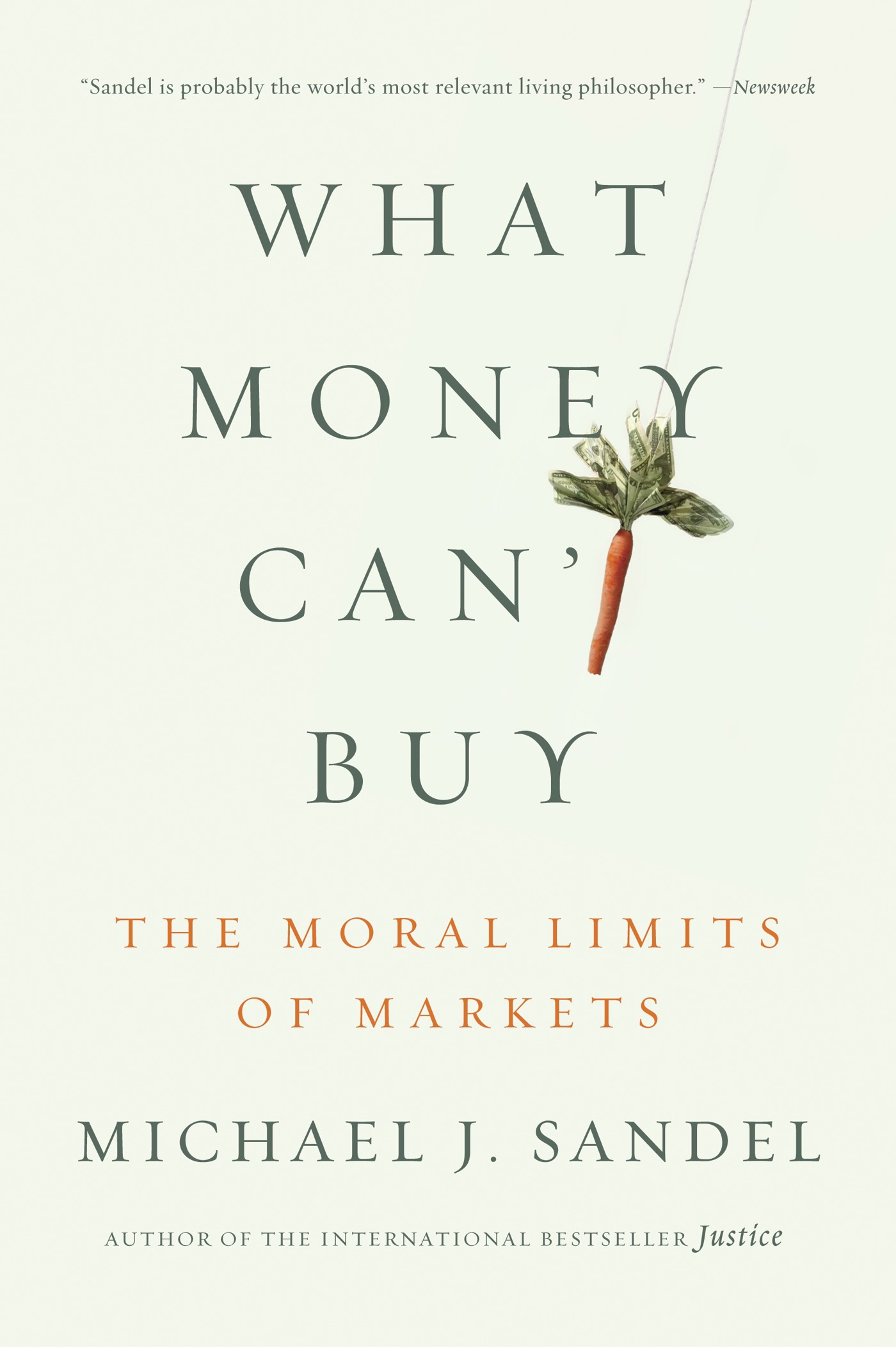
What Money Can't Buy: The Moral Limits of Markets
Markets are not mere mechanisms. They embody norms - certain ways of valuing the goods being exchanged. Yet, markets have infiltrated aspects of life traditionally governed by non-market norms (e.g. culture, morals), like:
- Queueing: You pay someone to queue for you
- Citizenship: You pay for the right to immigrate (sounds familiar)
- Education: Kids are paid to study hard
- Sterilisation: A woman is paid to undergo sterilisation
- Wedding Toasts: You pay for an awesome speech
- Life Insurance: A company gets payouts for its employees’ death
- Mortality: People make bets on whether celebrities will die
- Names: A city/company sells the right to name their property
- The Human Body: Rent your forehead for advertisements
The main argument for commercialisation is that it maximises society’s wellbeing as a whole by allocating goods efficiently, assuming that people make optimal choices. The two main arguments against commercialisation in the book were:
- Unfairness: Not all market choices are made voluntarily. People in need could be coerced into selling something they might not sell under normal circumstances.
- Corruption: Some things seem wrong with a price tag. Friendship, a wedding toast, and love are supposed to be sincere, and babies and body parts have a certain sacred characteristic about them. There are higher ways of living and being that are compromised when you attach a dollar value to certain things.